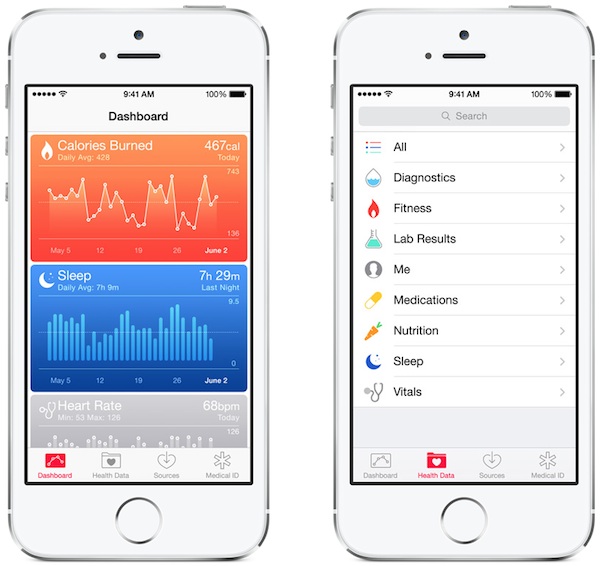iOS 8 Preview: HealthKit
John Scalo
12 August 2014
This is the third in a series of articles previewing iOS 8-specific features coming to Numerous.
If you haven’t noticed, we’re pretty psyched about Apple’s upcoming iOS 8. Numbers in the Today tab of Notification Center? Check. Anonymous iCloud sign-in? Check. Next up is HealthKit.
What’s HealthKit?
Apple announced HealthKit at WWDC 2014, describing it thusly:
HealthKit allows apps that provide health and fitness services to share their data with the new Health app and with each other. A user’s health information is stored in a centralized and secure location and the user decides which data should be shared with your app.

At first glance it may seem like nothing more than a “Health” app (un-deletable from your phone, naturally) that allows you to enter various health metrics. But Apple’s Health system is way bigger than that. Nike, Fitbit, Withings, Strava, RunKeeper, and iHealth have all announced HealthKit support, so you can expect data generated by those systems to find its way into HealthKit automatically. The iWatch, if such a thing exists, will surely populate data here, too. Apple even announced a partnership with the Mayo Clinic, suggesting a private cloud-based API.
Essentially, HealthKit promises to turn your iPhone (or any iOS device) into a health hub. It’s a recognition from Apple that health data is important in our everyday lives but fragmented and difficult to access with current systems. With HealthKit and iOS 8, instead of opening the Strava app to check your latest ride, the Withings app to check your weight, and the Mayo Clinic website for the results of a recent blood panel, all of that information can be accessed from within Apple’s Health app.
Given that, it’s easy to see how perfectly HealthKit aligns with our mission of keeping all your important numbers in one place. Apple is setting out to solve the same problem we are, only in a smaller domain.
So which types of data does HealthKit support? BMI, blood glucose concentration, heart rate, fiber intake, …. The full list is way too long to show here but Apple lists them in this release note (look at HKTypeIdentifiers.h). As long as the list is, I can imagine it being much larger and I suspect it will steadily grow over time.
We’re happy to announce that we’ve already integrated HealthKit into the Numerous iOS app, making it possible to add your most important health metrics to your personal dashboard. And soon we’ll announce our iOS 8 beta program so you can try it out.
